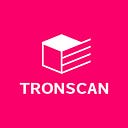What is a blockchain node?
In general, every device on a blockchain network is a node. Nodes are distributed across a widespread network and carry out a variety of tasks. Each node has a copy of the digital ledger or Blockchain. Each node checks the validity of each transaction. If a majority of nodes say that a transaction is valid then it is written into a block.
Nodes on the TRON network
There are different types of nodes, and the three types of nodes on the TRON network are Witness Node, Full Node, and Solidity Node.
Witness nodes are set up by SRs and are mainly responsible for block production and proposal creation/voting. Full nodes provide APIs and broadcast transactions and blocks. Solidity nodes sync blocks from other Full Nodes and also provide indexable APIs.
What performance does a processor need to have in order to run the node software?
At least 2 core CPUs are required to run a full node, at the minimum performance. If you are running on a private environment, with fewer transactions, then you will be fine with 4 CPU cores. So, the amount of network requests determines the CPU performance required to run the nodes. You will need to monitor your machine to decide the best requirements. In the PUBLIC NETWORK, TRON recommends to run a machine with at least 64 CPU cores for a Super Representative to become an approved applicant.
